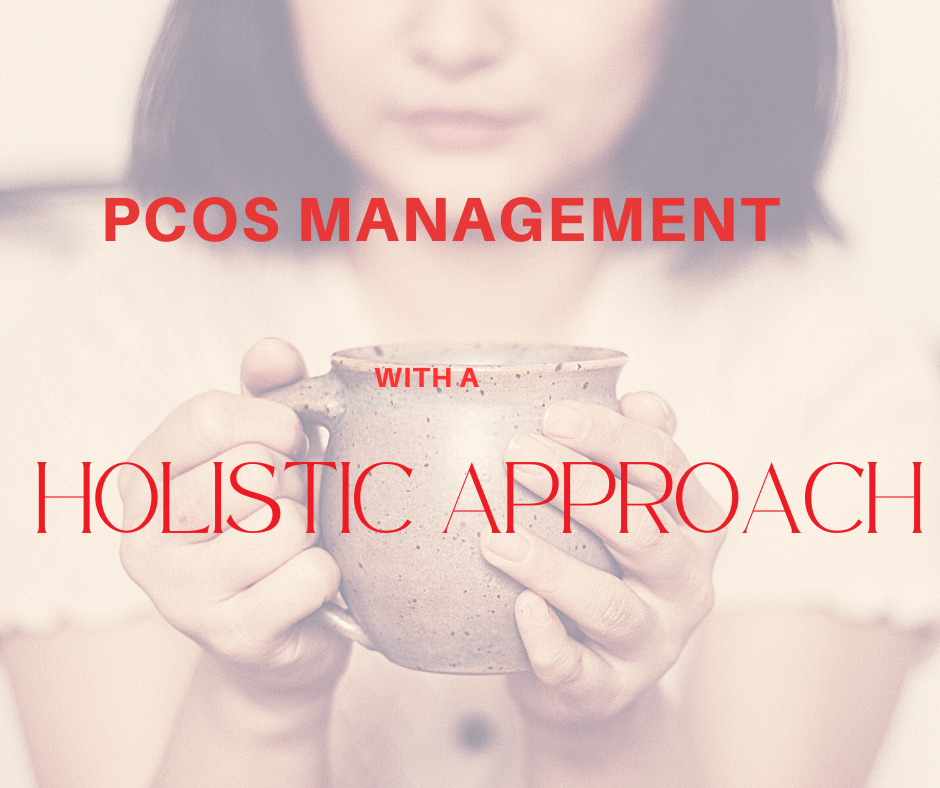
Holistic Approach To PCOS Management
Polycystic ovary syndrome (PCOS) is considered to be a multifaceted disease with a spectrum of manifestations affecting not only women of childbearing age, but also adolescents and postmenopausal women1. PCOS prevalence rates in India vary across different studies, making it challenging to determine an exact figure. However as per NIH in one of the studies prevalence of PCOS in India was seen to range from 3.7 to 22.5 per cent depending on the population studied and the criteria used for diagnosis2
Research indicates that PCOS prevalence rates tend to be higher in urban areas compared to rural regions3. Urban lifestyles, characterized by sedentary habits, poor dietary choices, and higher stress levels, could be the contributing factors to this disparity.
The common symptoms of PCOS are
- Irregular menses
- Hirsutism
- Acne
- Hair fall
- Emotional imbalances like depression, anxiety etc
Living with Polycystic Ovary Syndrome (PCOS) can be challenging, but taking a holistic approach to its management can make a significant difference in your overall well-being. In this blog, we’ll explore how addressing the nutritional, lifestyle, and emotional aspects of PCOS can empower you to lead a healthier and happier life.
- Nourishing Nutrition: To effectively manage PCOS, it’s crucial to pay attention to your nutritional choices. Here are some key dietary considerations:
- Balanced Meals: Opt for a well-balanced diet that includes lean proteins, complex carbohydrates, healthy fats, and an abundance of fruits and vegetables.
- Cut down on refined foods and junk food.
- Blood Sugar Regulation: Focus on consuming low-glycemic index foods, such as whole grains, legumes, and fibre-rich foods, to help stabilize blood sugar levels.
- Mindful Eating: Hormonal imbalances can cause increase in hunger. Practice mindful eating by listening to your body’s hunger and fullness cues, savouring each bite, and avoiding emotional eating triggers.
Lifestyle Modifications: Adopting a healthy lifestyle can significantly impact PCOS symptoms and enhance your overall well-being. Consider the following:
- Regular Physical Activity: Engage in regular exercise, such as cardio, strength training, and yoga, to improve insulin sensitivity, manage weight, and reduce stress.
- Quality Sleep: Prioritize a consistent sleep schedule and create a soothing bedtime routine to promote optimal hormonal balance and overall health.
Emotional Well-being: PCOS is often characterised by emotional imbalances, depression, anxiety etc. It is best to accept your disharmonized emotions and start working on them. Addressing emotional well-being is crucial in managing PCOS effectively. Here are some tips to nurture your emotions:
- Self-Care: Prioritize self-care. Whilst you plan your self-care program, try to focus on principles of self-care and then have in place the practices related to the same. E.g if you decide to unplug from everything on a regular basis, then unplugging is the principle. You can associate various activities with it like meditation, nature walks, spending time amidst natural surroundings etc. when your principles are clear, you can identify the practices which are best suited to the environment you are in. For e.g meditation at home may be possible, whilst on tour/journey probably taking warm baths, practising self-reflection or journaling can be an activity of unplugging.
- Emotional Awareness: Practice emotional awareness. Try to zoom out and identify your negative emotions. Develop healthy coping mechanisms, such as mindfulness, gratitude, and seeking professional counselling when needed.
- Flower Therapy: Bach Flower therapy gives excellent results in coping up with the emotional imbalances like depression, anxiety, mood swings and also emotional eating in PCOS. It is safe, natural and can complement with any other therapies or medications you may be taking.
- Essential oils Essential Oils: Experiment with essential oils like lavender, clary sage, cinnamon, and peppermint, known for their calming and hormone-balancing properties. Use them safely and according to recommended guidelines.
Taking a holistic approach to PCOS management is a transformative journey that encompasses nurturing your body, and mind. By addressing the nutritional, lifestyle, and emotional aspects, you can empower yourself to manage PCOS more effectively and lead a fulfilling life. Remember, each person’s experience is unique, so tailor your approach based on your individual needs and always consult healthcare professionals for personalized advice.
References
